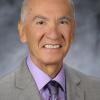Two important historical dates are marked this week. The first is the 50th anniversary of the 1963 March on Washington, when Dr. Martin Luther King Jr. delivered his famous "I Have a Dream" speech.
I was in high school at the time, and I remember watching the march on television. I'm sure I was impressed with the power of the march, and I know I was moved by Dr. King's powerful words. I was not as politicized then as I would be later during the Chicano Movement of the late 1960s and early 1970s, but as a Chicano and as a member of a minority group, I sympathized with the civil rights movement by African-Americans.
I believe my generation of Chicanos was influenced politically during the early 1960s by the election of President John F. Kennedy and his youthful inspiration. We further identified with Kennedy because of his Catholicism, the same faith most of us as Chicanos professed. I know my growing interest in politics and history was furthered by my enchantment with the youthful president. But I was also inspired by Dr. King and especially by his powerful speech on Aug. 28, 1963. His words became my words. He spoke for me and for many others who instinctively opposed racial discrimination. I believe this was also the case for many other Chicanos. Part of the origins of the later and powerful Chicano Movement is to be found in the March on Washington and in Dr. King's clarion call for civil rights and dignity for African-Americans and other minorities. That day, Dr. King also spoke for Chicanos.
The second major anniversary is on Aug. 29, which marks the 43rd year of the Chicano anti-war moratorium march in East Los Angeles against the war in Vietnam. That day in 1970 saw more than 20,000 people, mostly Chicanos, protest in the largest manifestation of the Chicano Movement, the largest and most widespread civil rights and empowerment movement by Americans of Mexican descent in the country.
Chicanos denounced a war some considered to be genocide against Mexican-Americans because they were being disproportionately drafted, recruited and sent as cannon fodder to Vietnam. A report issued by the late Professor Ralph Guzmán at California State University, Los Angeles said while Chicanos represented about 10 percent of the population of the Southwest -- including California, where most Chicanos lived that at the same time -- they represented 20 percent of the casualties from this region.
Chicano activists, led by the National Chicano Moratorium Committee, also protested the war because of the federal budgets cuts in the War Against Poverty to pay for the war. This, in turn, affected job and educational opportunities for a still-struggling population. Instead, Chicanos emphasized that "La batalla esta aquí": The war was not in Vietnam but in the barrios.
Like Muhammad Ali -- who refused induction by saying, "I'm not going to go to war against the Vietnamese. What have the Vietnamese ever done to me? But I'm going to go to war in my home state of Kentucky, where white racists have harmed me" -- Chicanos said, "The war is here." Here against police violence, which would hit the moratorium that day and kill three people; against poverty; educational injustice; and, among other forms of racism, the lack of dignity and respect given to Chicanos.
Aug. 29, 1970, was a day that would live in infamy for Chicanos of the Chicano generation. The remembrance of that day is a way of recommitting the newer generations of Chicanos/Latinos to also continue the Chicano Movement's struggle for full rights for Latinos and for all of Dr. King's America. We all share that dream.




